One of the things I’ll miss about teaching at Eton is the ever-present threat of an ironic riposte from one of the boys. ‘Cheer up,’ I told one who looked un-enthused by Milton in my first week at the school, nine years ago. ‘Two hundred years ago, you’d have been down a mine!’ ‘Sir,’ he replied deadpan, ‘we’d have owned the mines.’ The class erupted in self–deprecating laughter. I’d arrived.
It was the boys themselves who suggested and named the YouTube channel Knowland Knows, which has since got me summarily dismissed. The axe fell swiftly after I asked why a video entitled ‘The Patriarchy Paradox’ (originally intended as half of a debate on the new gender orthodoxies at the College, which never saw the light of day) should be deleted from this public platform. The reason given was the presence of an Eton disclaimer on the channel, originally added at the College’s own request.
I’ve since been called everything from a free-speech martyr to a misogynist. While the video has received views equivalent to more than 100 times the size of the Eton student body, it was the boys themselves who first came to my defence, with a compelling open letter saying they felt ‘morally bound not to be bystanders in what appears to be an instance of institutional bullying’. They boldly claimed that ‘young men and their views are formed in the meeting and conflict of ideas’, and correctly pinpointed free speech as the principle at stake — otherwise why was it so essential the video should come down?
They had already sensed the need to resist a drastic narrowing of debate in the schoolroom, which has reportedly led them to set up private debating groups to test viewpoints forbidden in class. Their wit seems to have inoculated them against being wholly ventriloquised by the new regime blighting the school. ‘But sir’ — deadpan again — ‘I thought the College was meant to be diverse?’
My disciplinary process was only the latest in a series of lustrations turning Eton into a stifling monoculture. One master — since cleared of all wrongdoing without being reinstated — found himself facing the very disciplinary procedures the fairness and viability of which he had initially questioned. When justice dies, irony soon follows.
Yet, as Lenin knew, ‘the educational value of courts is tremendous’. At my hearing, two of the three ‘senior teachers’ specified as disciplinary panellists by the College’s constitution were the headmaster’s new appointments to his inner circle, and the third was his own deputy. The College had lawyers present (at one point attempting to replace a fellow with an external QC) while I did not. A colleague’s character–witness statement was significantly altered, being restored to its original only after she protested in writing. Only in response to pressure did the school provide an external note-taker.
‘A lie,’ as James Callaghan said, ‘can be halfway round the world before the truth has got its boots on.’ And so it was that the Provost — once described as ‘apt to mislead’ in the pages of the Scott inquiry — tried to quell the public outpouring of disquiet around my case by suggesting the video had breached the Equality Act. But neither the College’s initial legal advice nor my dismissal letter claimed anything of the sort.
It was not new legislation I’d transgressed, just a new religion with an old-time zeal to suppress dissent and punish heresy. The College’s ‘approach to equality and diversity’ — which it finally claimed I had breached — has never been explained to staff, making it impossible to follow. The boy who wrote to me afterwards saying he wished more could have been done to defend my case needn’t have felt so bad.
Victor Klemperer wrote in The Language of the Third Reich that ‘words are like tiny doses of arsenic, swallowed unnoticed, and then after a while the toxic reaction sets in’. And so ‘diversity’ demands conformity; ‘inclusion’ is only for those already in the group; ‘tolerance’ cannot bear tradition; and ‘lived experience’ counts for some, not for others.
With the headmaster threatening to refer me to the Teaching Regulation Agency, potentially banning me from the classroom for life, at least I can be grateful to Covid for boosting demand for my online tutoring. While not making such threats or pursuing tendentious Prevent referrals, he offers empty platitudes about free speech thriving at Eton. Maybe so: just don’t expect to keep your livelihood afterwards.
Got something to add? Join the discussion and comment below.
Get 10 issues for just $10
Subscribe to The Spectator Australia today for the next 10 magazine issues, plus full online access, for just $10.
You might disagree with half of it, but you’ll enjoy reading all of it. Try your first month for free, then just $2 a week for the remainder of your first year.

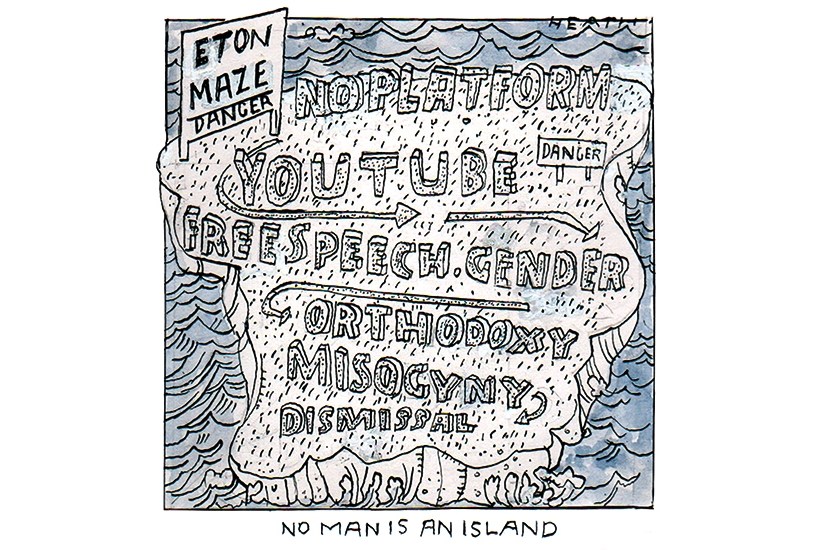
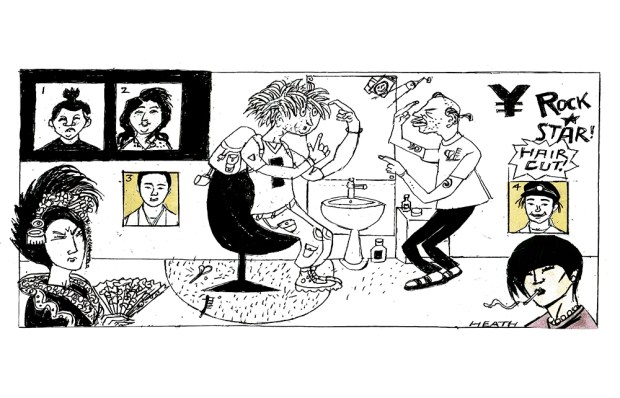
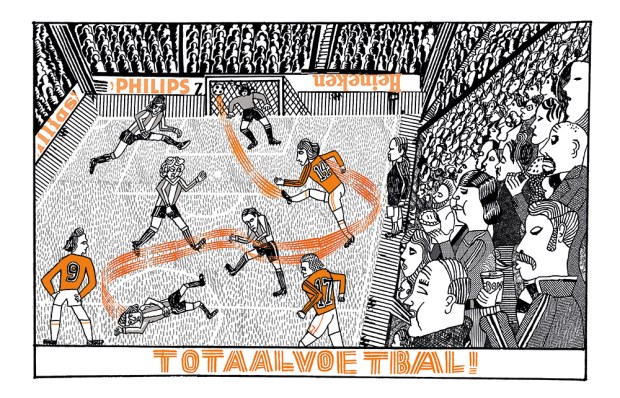
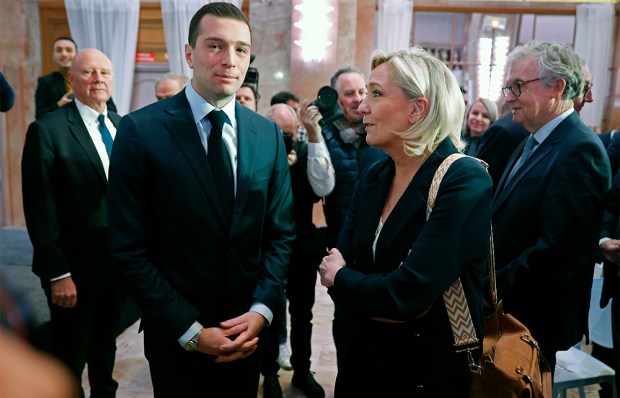
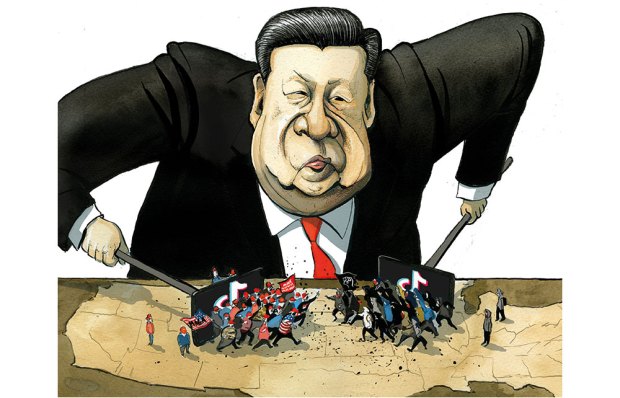
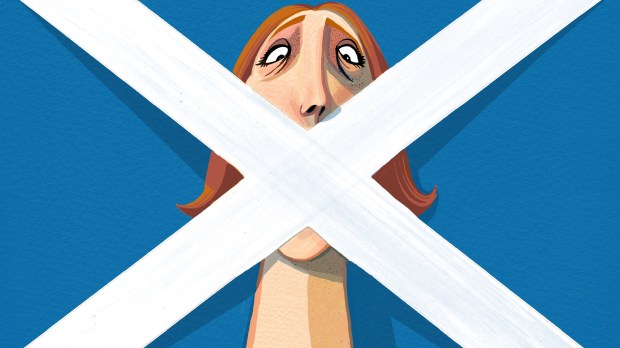
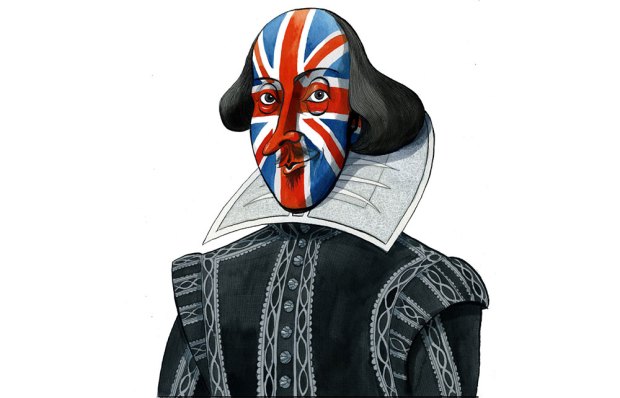






Comments
Don't miss out
Join the conversation with other Spectator Australia readers. Subscribe to leave a comment.
SUBSCRIBEAlready a subscriber? Log in